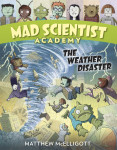
Mad Scientist Academy: The Weather Disaster
One of the best things about working on the Mad Scientist Academy books is that I get to meet real scientists as part of my research. When I was writing The Weather Disaster, I got to work with Jason Gough, a meteorologist on the NewsChannel First Warning Weather Team at WNYT in Albany NY.
A few weeks ago, I visited the station to talk to him in person. Jason did a short interview with me about the new book, and I interviewed him about his job.
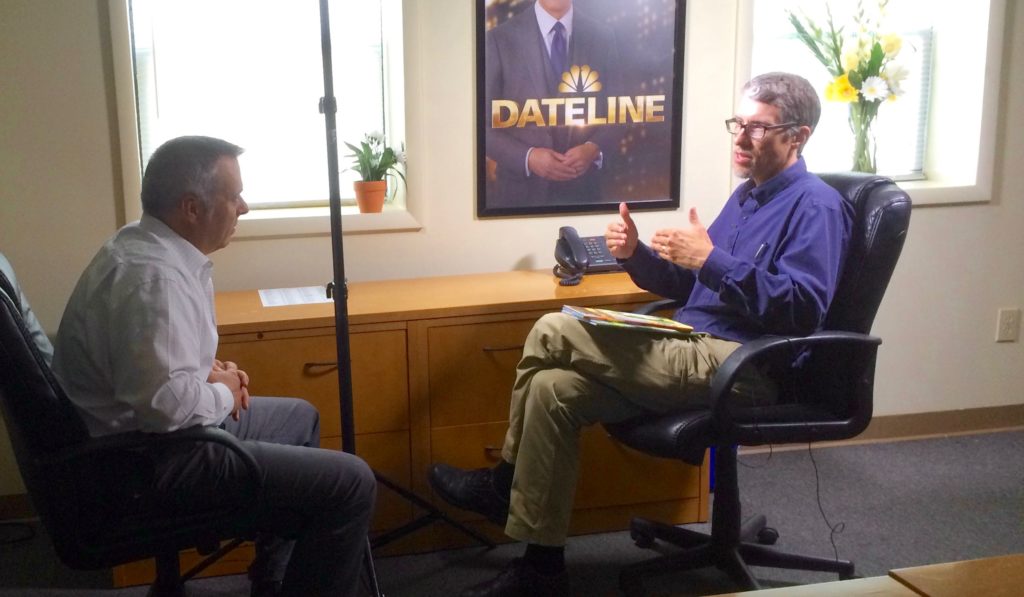
Matt and Jason at WNYT
Jason, you’re a meteorologist. What is that, exactly?
Meteorologists are people who study the atmosphere in order to forecast the weather as accurately as possible. We study meteorology to keep people safe. Sometimes the weather can be dangerous. We let people know ahead of time, so they can be prepared.
Is this something that you always knew you wanted to do?
Yes, and that’s pretty common in our field. Just about every meteorologist you talk to will tell you they had some sort of weather event early in their lives, like a tornado coming through town, or a hurricane, or a big snow storm, and that’s what got them interested in weather.
Was there an event like that for you?
Kids in schools ask me this a lot. I used to be afraid of thunderstorms when I was a little kid, especially at night. So my father took me down to the public library—this was long before computers and the internet—and we got some books. I learned about thunderstorms and how they form, and I learned that there was more to the weather than just thunderstorms.
I really got into learning more, and I started to forecast snow storms as best as I could because I liked snow days. I liked the break from school, but I especially liked snow days because I could shovel driveways and make a lot of money!
How did you turn your interest in meteorology into a career?
I got a degree in meteorology in college. One thing that I tell kids about a meteorology degree is only the first classes are about looking at kinds of clouds and cold fronts. After that, it’s hardcore science and math. A lot of math!
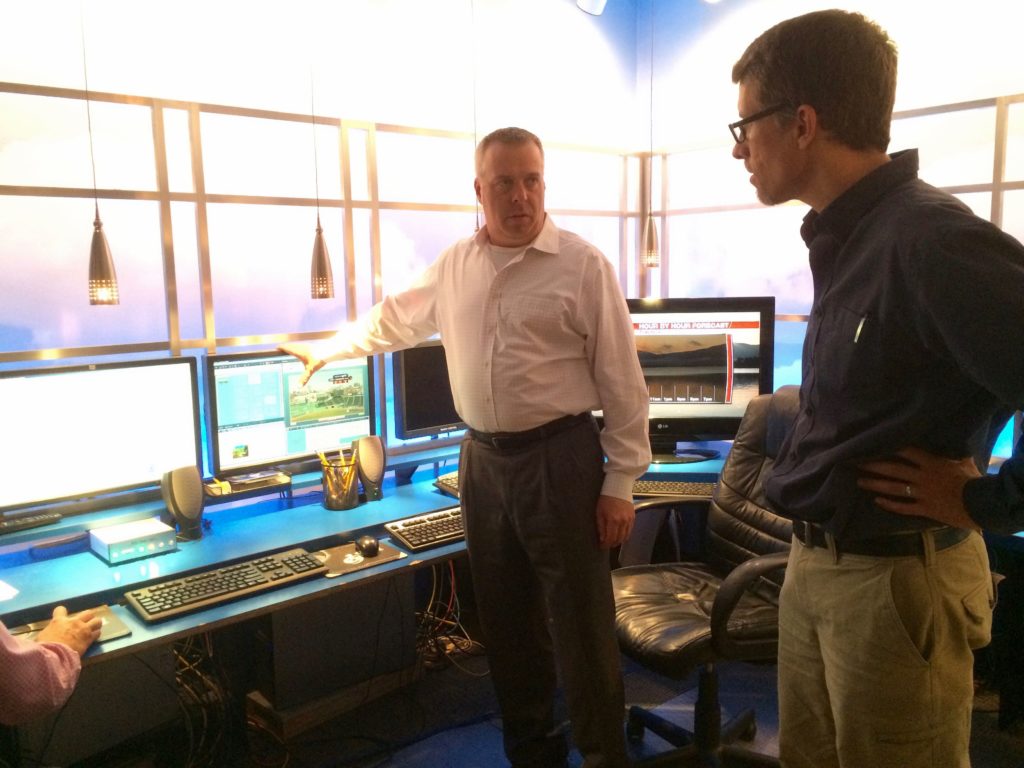
The weather center at WNYT
How does math figure into meteorology?
There are a number of ways. Part of being a meteorologist is getting numbers to tell the story of predicting the weather. This involves putting data into supercomputers to create models for what the weather might do. For example, in order for a thunderstorm to form, you have to have a parcel of air rise quickly. The faster the air rises, the nastier the storm will be. These possibilities are computed using very complex mathematical equations, and I’m glad we have computers to help with that!
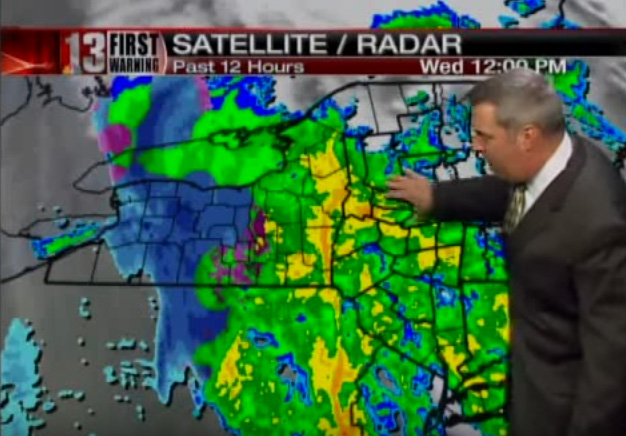
Jason Gough delivering a weather forecast.
Do you enjoy being on TV every day? What’s that like?
I do! I like when people recognize me in public, because that means they are watching the weather forecast. I want people to know about dangerous weather and television lets me do that. I have friends all over the country and if I find out about bad weather in their area, I always contact them. I would be doing this anyway, whether or not I was on TV!
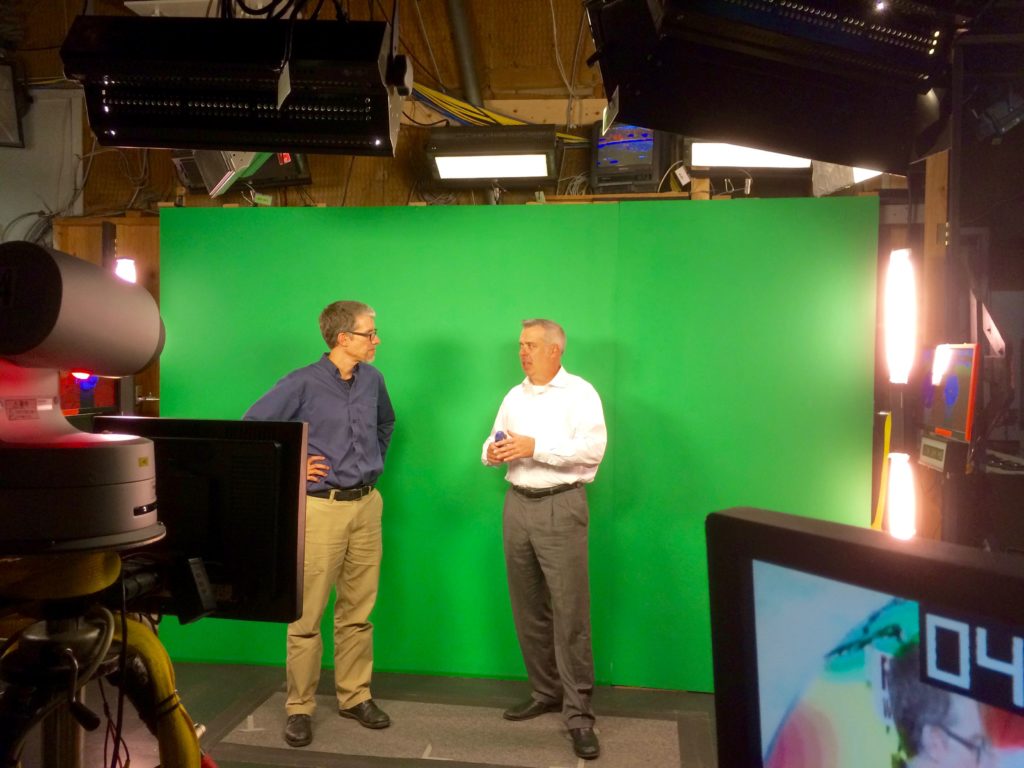
The green screen in the studio where Jason does his forecast.
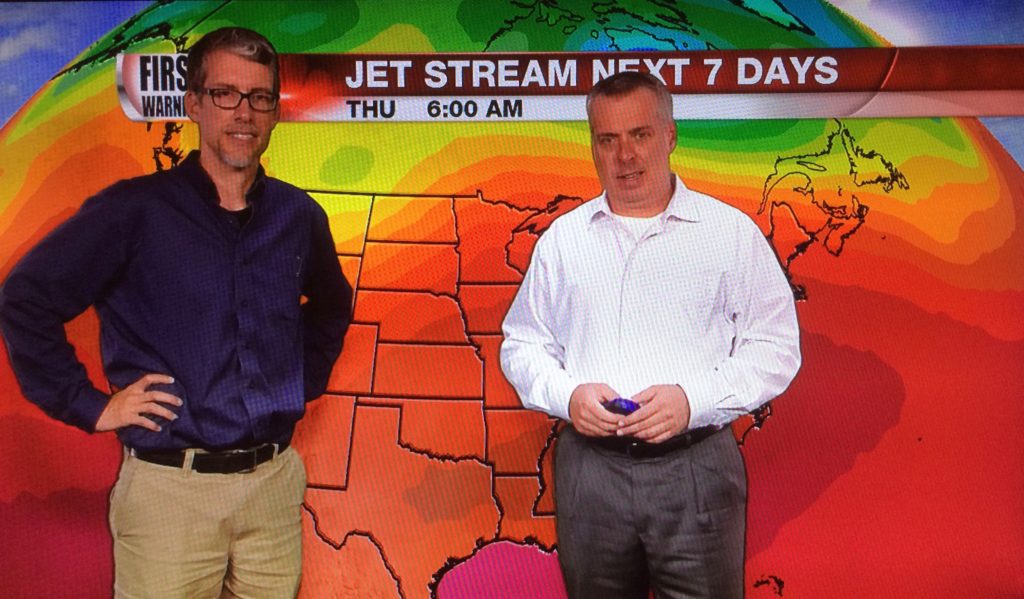
What it looks like to the viewers at home.
Are there any stories that stand out in your career as a meteorologist?
I alway try to get the message out about dangerous weather without sounding too alarmist, but also without being too lax about it. I remember the time leading up to the arrival of Tropical Storm Irene in 2011. I watched the storm evolve over a few days. On Wednesday I predicted it was going to be one of the biggest weather events in this area in 50 years, and come Sunday it was going full force.
That must have felt really good, to predict the storm and get the word out to the people here.
Yes! We want to get the word out to avoid people getting hurt. Meteorologists want people and their businesses, homes, pets, and everything to be safe.
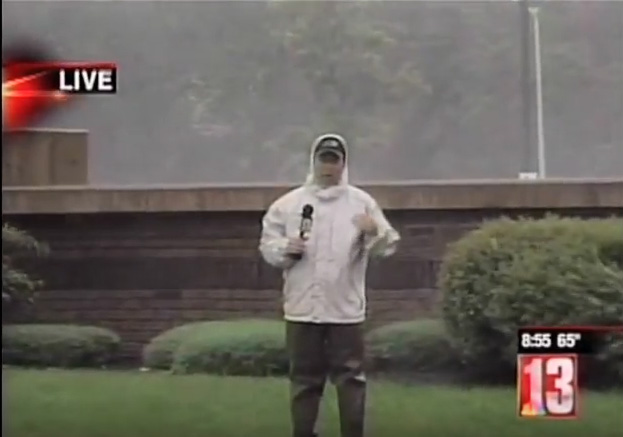
Jason Gough reporting live during Tropical Storm Irene
Would you recommend meteorology as a career for kids who are interested in science?
Absolutely. It’s a fascinating science. Did you know that only about ten percent of meteorologists are on TV? The other ones are doing research, teaching, or forecasting for the National Weather Service or private companies. Even the PGA and Major League Baseball hire forecasters!
